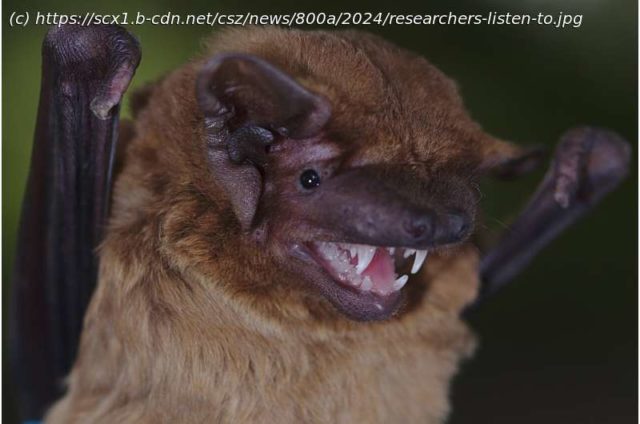Researchers from Konstanz have measured the heart rate of bats over several days in the wild, including complete flights—the first time this has been done for a bat species. To record the heart rate of male common noctule bats during flight, the scientists attached heart rate transmitters weighing less than one gram to the animals, which they then accompanied in an airplane while the bats flew, sometimes for more than an hour, in search of food.
Researchers from Konstanz have measured the heart rate of bats over several days in the wild, including complete flights—the first time this has been done for a bat species. To record the heart rate of male common noctule bats during flight, the scientists attached heart rate transmitters weighing less than one gram to the animals, which they then accompanied in an airplane while the bats flew, sometimes for more than an hour, in search of food.
Their results, published in Proceedings of the Royal Society B, show how much energy bats consume over the course of a day and what energy-saving strategies they use to survive.
Researchers from the Max Planck Institute of Animal Behavior (MPI-AB) and the University of Konstanz used a special method to study male common noctule bats, which are found throughout Europe. Their aim was to understand exactly how much energy bats consume during the day and how this changes over the course of the year.
“Bats are fascinating animals that often share their habitat with us humans”, says Lara Keicher, the lead author of the study. “But bats are still shrouded in mystery. We don’t yet have a clear answer to simple questions such as: How much food do they need and can they find enough of it in different seasons to survive?”
To predict how bats will fare in a changing climate, Keicher says it is crucial to know their energy requirements.






